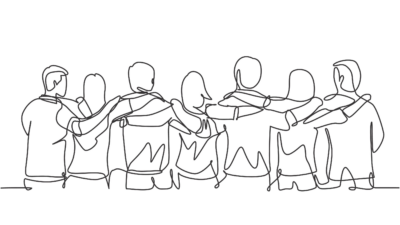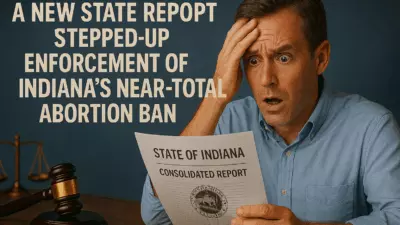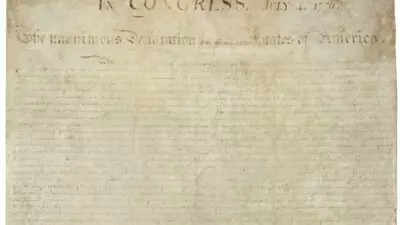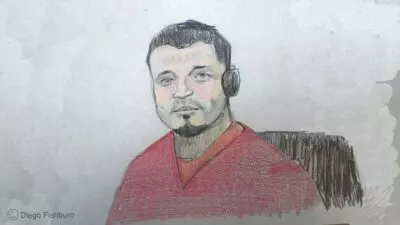NEWTOWN, Ohio — Stop me if you’ve heard this one before:

A cop walks into a recovery meeting …
It’s been a while since I’ve written. I wish there were some exciting reason I haven’t — an adventure, excursion, a journey fulfilled. In a way, it’s been all of those. But this is one that life chose for me, not one of my own.
In full transparency, I have been struggling.
It’s the kind of struggling that occurs when your life is heading in a direction you always hoped for, then, out of nowhere, life taps you on the shoulder and says, “Nope, this is not what I planned for you,” resulting in the kind of face-plant that unveils universal questions, a loop in your head of:
“How did I get here? What happened? What went wrong? How did I not see this coming?” Or, “Dammit, I should have known this was going to happen!”
This was the kind of experience that brings up the pains of the past you left unresolved, compounding the current pain and suffering.
You might be thinking:
Toughen up! Get off the floor, wipe your bloody nose. We all suffer.
And, you may be asking:
What the hell does any of this have to do with a cop walking into a recovery group?
Let me explain:
I have always admired those in recovery. Was it because they were “underdogs” like me? Was it because they seemed like broken people, not worthy of repair?
I walked into a small, cramped room with about 30 men in recovery from addiction. Each said their name, how they were feeling, and proudly announced their favorite ice cream.
“I am feeling happy, and my favorite ice cream is vanilla.”
“I am feeling grateful, and my favorite ice cream is cherry cordial, which, by the way, is highly underrated.”
“I am feeling irritated, and my favorite ice cream is pecan.” This garnered muffled laughs, maybe partly out of sympathy … of all ice creams, pecan?
I’m sitting there in my uniform not having prepared a speech. Stares saying “Who do you think you are? Wait, you’re the enemy,” greeted me. Later, they clarified that with: “I judged you and that was wrong.”
After being introduced, I stood up.
“My name is Tom. I’m feeling nervous. And, my favorite ice cream is double chocolate chip.”( I kinda like all the ice cream they mentioned, except pecan).
I told my story of wanting to be a cop because I believed a cop could change the world.
I told them how I didn’t only believe I was Batman, but knew I was and not to let my lack of physical height lead them to believe otherwise. Then I told them how an entire family in my community died from addiction. How I first met them all, watched the three sons grow up. How, throughout my career, each member of this entire family, an entire generation, died one by one from their addictions.
My once unwavering view that I could save the world was shattered, because I couldn’t even save a family. But through that struggle, I found I could change how the world views and deals with addiction. I would not have made that realization if not for the pain I had to face.
But that day, in front of 30 men in recovery, my suffering had not been while wearing the uniform or as a Caped Crusader. Instead, it was something even more susceptible to being pierced — me, the person. I suffered current and long-suppressed pain, a suppression that deemed itself not a worthy survival skill anymore.
I paused, looking at each of them. Suffering is always visible. Some were suffering physically, others emotionally, and all were asking the same questions.
How did I end up here? Why didn’t my dreams come true? Why can’t I shake the pain of my past? Will I ever recover and be who I thought I was?
I finished my talk and spent the rest of the time listening to them. One said, “You have to know, some people don’t want to recover — it’s easier to numb the pain than face it.”
Those suffering from addiction are no different from the rest of us. We all try our best, even while in denial, ignoring, suppressing, or using substances to not feel pain. Yet we will all experience pain. We will all suffer — some of us to different degrees.
Suffering is always visible
I listened as each man told stories of being treated as a person, and, at other times, as something less than human. They talked about dreams lost, and about being trapped in despair.
At the end of my talk, each one walked up and shook my hand. As I was talking to the counselor who had invited me, one of the men came back in and said, the hardest part of addiction is “the guilt and shame. I feel constant guilt and shame, only in recovery I can’t run from it, hide from it, or numb it. I must feel it and face it.”
In order to recover, one must do something that scares all of us, even without addiction: face our own suffering.
All of this is done with a vulnerability that opens them to ridicule, judgment, and criticism by those not strong enough to do the same — or those that life has yet to humble enough.
The young man, irritated, was the last to come up to me. His suffering was so heavy he could not stand up straight — head bowed, gingerly in each step taken toward me. He extended his hand, “To let you know, I’m not irritated at you.”
So, a cop walks into a recovery group, struggling with his own suffering, and finds …
I’m not much different from them.
I, like they, search for a way to be whole and complete in understanding who I am in any given moment. I don’t have the extra burden of addiction. I’ve got nothing to numb my pain.
You want to understand suffering? Walk into a room like that, where, in order to find oneself, heal oneself, recover oneself, each must pull out the shattered pieces of their heart and talk about their lives.
We all must suffer in order to have a chance at grace, forgiveness, and understanding. It’s an opportunity to not judge, because we would not want that done to us.
In that small, cramped room, a cop and a group of men in recovery got beyond labels — We became vulnerable, sharing the commonality of pain and humanity found in it. We gave one thing that can ease the burden of suffering: empathy.
I went to my car and sat for a while. I had a better outlook on letting go of the shock and pain I first experienced, as well as the pain I had been carrying from long ago. I drove away thinking I needed to make one more stop.
I got home, sat on my own couch. I took a big spoonful of pecan ice cream, understanding that sometimes life gives you pecans when you want chocolate chips.







